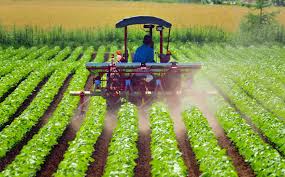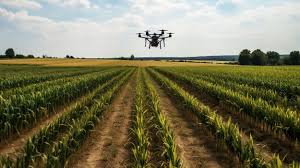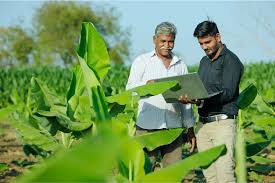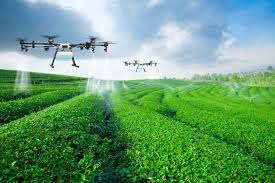Precision agriculture is a farming approach that utilizes technology and data to improve crop yields, efficiency, and sustainability.
By gathering and analyzing detailed information about the farm, farmers can make informed decisions tailored to their specific conditions.
This innovative method helps maximize productivity while minimizing waste and environmental impact. As the global population grows and demands for food increase, precision agriculture is becoming essential for modern farming practices.
Key Technologies in Precision Agriculture
Several key technologies play a significant role in precision agriculture, enabling farmers to enhance their practices effectively:
1. GPS and GNSS Technologies: Global Positioning System (GPS) and Global Navigation Satellite System (GNSS) technologies allow farmers to pinpoint the exact location of their fields. This precision aids in field mapping, planning, and tracking equipment movements.
2. Remote Sensing and Drones: Drones equipped with cameras and sensors can capture aerial imagery and data on crop health, soil conditions, and moisture levels. This information helps farmers identify issues early and manage their resources more effectively.
3. Soil and Crop Sensors: Sensors placed in the soil can monitor moisture, temperature, and nutrient levels in real time. These sensors help farmers determine the precise needs of their crops, leading to better management practices.
4. Variable Rate Technology (VRT): VRT enables farmers to apply inputs such as fertilizers and pesticides at varying rates across their fields based on specific needs. This targeted approach reduces waste and enhances crop health.
Benefits of Precision Agriculture

1. Increased Crop Yields: By using data to make informed decisions, farmers can optimize conditions for crop growth, leading to higher yields.
2. Resource Efficiency: Precision agriculture minimizes the use of water, fertilizers, and pesticides by applying them only where and when needed. This efficiency reduces costs and environmental impact.
3. Enhanced Sustainability: By using less harmful chemicals and conserving resources, precision agriculture promotes sustainable farming practices that protect the environment.
4. Data-Driven Decisions: Farmers can analyze data trends over time to make better decisions about crop management, pest control, and overall farm operations.
Optimizing Resource Use
Effective resource management is a cornerstone of precision agriculture, ensuring that inputs are used wisely and sustainably:
1. Soil Management: Understanding soil types and conditions through soil testing helps farmers apply the right nutrients and amendments, improving soil health and crop productivity.
2. Irrigation Management: Precision irrigation systems allow farmers to deliver water only when needed, reducing water waste and promoting healthy plant growth.
3. Nutrient Management: By monitoring crop nutrient needs, farmers can tailor fertilizer applications to specific areas of the field, preventing over-fertilization and minimizing runoff.
4. Pest Management: Using technology to monitor pest populations enables farmers to apply pest control measures more effectively, reducing pesticide use and protecting beneficial insects.
Read Also: Bird of Paradise Flower (Strelitzia reginae): All You Need To Know About
Improving Crop Yields

Precision agriculture plays a crucial role in improving crop yields by utilizing technology and data-driven strategies to enhance farming practices. Here are some ways precision agriculture helps increase productivity:
1. Data-Driven Decision Making: By collecting and analyzing data from various sources, farmers can make informed decisions about planting, fertilizing, and irrigating crops. This targeted approach ensures that each crop receives the care it needs, leading to healthier plants and higher yields.
2. Enhanced Soil Management: Precision agriculture involves testing soil health and nutrient levels. By understanding the specific needs of the soil, farmers can apply the right amount of fertilizers and amendments, promoting better root development and growth.
3. Optimized Irrigation Practices: Advanced irrigation systems can monitor soil moisture levels in real-time. This technology allows farmers to water their crops only when necessary, preventing over-watering or under-watering, both of which can harm plant health and reduce yields.
4. Integrated Pest Management (IPM): Precision agriculture allows for precise monitoring of pest populations. Farmers can use this information to apply pest control methods only when necessary, reducing crop damage and increasing overall productivity.
5. Crop Variety Selection: By analyzing data on different crop varieties and their performance in specific conditions, farmers can choose the best varieties suited to their land, climate, and market demands.
Case Studies of Precision Agriculture Success
Several successful implementations of precision agriculture illustrate its effectiveness in enhancing crop yields and farming efficiency:
1. Case Study: John Deere: John Deere, a leader in agricultural machinery, developed precision agriculture technologies like GPS-guided tractors and variable rate application systems. Farmers using these technologies have reported yield increases of up to 20%, reduced input costs, and improved resource management.
2. Case Study: The Australian Cotton Industry: In Australia, cotton growers adopted precision agriculture practices, including soil mapping and crop monitoring using drones. As a result, they have increased their cotton yields significantly while reducing water usage by up to 30%, demonstrating the potential for sustainable farming.
3. Case Study: University of Illinois: Researchers at the University of Illinois implemented precision agriculture techniques in corn production. By using yield maps and data analytics, they identified areas within fields that required specific treatments, leading to an overall yield increase of 15% compared to traditional practices.
Read Also: General Management Considerations in Livestock Management
Challenges and Limitations

Despite its many benefits, precision agriculture faces several challenges and limitations that farmers must consider:
1. High Initial Costs: Implementing precision agriculture technologies can require significant upfront investment in equipment, software, and training. This cost may deter some farmers, particularly those with smaller operations.
2. Technical Complexity: Precision agriculture relies heavily on technology, which can be complex and require specialized knowledge. Farmers may face a learning curve in adopting new systems and interpreting data effectively.
3. Data Management: With the vast amount of data generated through precision agriculture, effective data management becomes crucial. Farmers must be equipped to analyze and utilize this data to make informed decisions.
4. Connectivity Issues: Many precision agriculture technologies depend on reliable internet access. In rural areas, poor connectivity can hinder the effectiveness of these systems.
5. Environmental Factors: Precision agriculture may not eliminate all environmental challenges, such as climate change, pests, and diseases. Farmers still need to adapt their practices to changing conditions.
Precision agriculture has the potential to significantly improve crop yields through data-driven decision-making, enhanced soil and irrigation management, and integrated pest management. Successful case studies highlight the effectiveness of these practices in increasing productivity and promoting sustainable farming.
However, challenges such as high costs, technical complexity, and data management issues must be addressed for broader adoption. As technology continues to evolve, precision agriculture will play an increasingly important role in meeting the global demand for food and ensuring sustainable agricultural practices.
Precision agriculture is transforming modern farming by integrating technology and data to enhance productivity, sustainability, and resource management.
As the agricultural sector continues to evolve, precision agriculture will play a vital role in meeting the challenges of food security and sustainable farming practices.
Do you have any questions, suggestions, or contributions? If so, please feel free to use the comment box below to share your thoughts. We also encourage you to kindly share this information with others who might benefit from it. Since we can’t reach everyone at once, we truly appreciate your help in spreading the word. Thank you so much for your support and for sharing!
Read Also: What is some advantages of solar energy?
Frequently Asked Questions
We will update this section soon.

